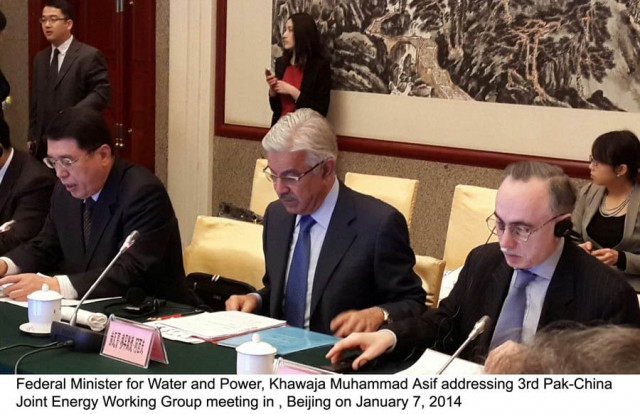Bullying through lawfare
Erosion of the boundary between the civil and military leadership makes lawfare even more appropriate

PHOTO: PID
Even Pakistan’s ‘all-weather ally’ China dropped the opposition in the second vote. The United States, an ally who has continually kept a keen interest in the geopolitical situation in the subcontinent since the Afghan war, and more so now as a result of China’s rising influence, denounced Pakistan’s support in the war on terror as ‘not satisfactory’. The ‘lawfare’ policy supports the Chinese as much as it supports the United States; for the Chinese, there remains the need to protect the $60 billion investment through the China-Pakistan Economic Corridor, and the need to counter any growing fundamentalist notions that may pose a problem later on.
The leaders of the free world were, therefore, having none of it. How does one pressure a nuclear capable state to act against enemies of the United States in their jurisdiction? Simple: tactfully pursue a policy of lawfare.
The doctrine of lawfare — a portmanteau of the words ‘law’ and ‘warfare’ — has become the preferred strategic tool in the evolving domain of foreign affairs. Charles Dunlap, the oft-cited coiner of the term, describes the practice of using law ‘as a means of realising a military objective’. The words ‘law’ and ‘warfare’ are antithetical to some extent. The former connotes the idea of justice through the governance of democratic institutions, ie, the courts; the latter connotes the idea attaining objectives by force and intimidation.

Over the years, the doctrine has rapidly gained traction. India has pursued the doctrine for many years, as it does so most recently after the Mumbai attack, winning strategic legal battles in the United Nations (UN Security Council Resolution 1373). Moreover, it oft links the Kashmir rebels to terrorist organisations, thus giving legitimacy to any counterattack mounted by India and painting Pakistan’s policy as being supportive of terrorist factions.
The erosion of the boundary between the civil and military leadership makes lawfare even more appropriate. A country undergoing a tug of war between institutions exhibits weak internal politics, making it viable for external intimidation through tactfully pursued policies.
Pakistan not only lacks a proper foreign affairs policy, but also lacks personnel capable in the field of international law in government departments such as the Foreign Office, interior ministry, which remains incompetent and embattled in the tug of war between institutions, or the law and justice ministry — which remains responsible for the vetting of all treaties, memorandum of understandings or MoUs signed with foreign countries and international agreements — or other departments. Similarly, no such personnel are found in the military domain either, ie, the Judge of Advocate General [JAG] branch of the armed forces.
A presidential ordinance was passed quietly, on February 9th, 2018, to enact changes to the Anti-Terrorism Act of 1997. Further action and policy was promised. The question beckons, was this presidential ordinance vetted by any legal team having expertise in international law? Possibly not. The same will happen with the future action plan.
The only hope is that Pakistan understands the need to bolster its capabilities to deal with the evolving domain of international law. This requires the creation of legal departments within the important civil and military areas, armed with practitioners and experts in international law. This ensures that Pakistan is not strong armed into creating and enforcing a policy that appeases their foreign allies, yet remains beyond what international law requires of them.
There is also a growing need to restructure and revitalise the foreign department and policy. There is a need to counter the change in perception that is created in the world, as a result of the lawfare policies pursued by other countries.
As Dunlap aptly put it: “It [Lawfare] all depends on who is wielding it, how they do it, and why.”
Published in The Express Tribune, March 2nd, 2018.
Like Opinion & Editorial on Facebook, follow @ETOpEd on Twitter to receive all updates on all our daily pieces.















COMMENTS
Comments are moderated and generally will be posted if they are on-topic and not abusive.
For more information, please see our Comments FAQ